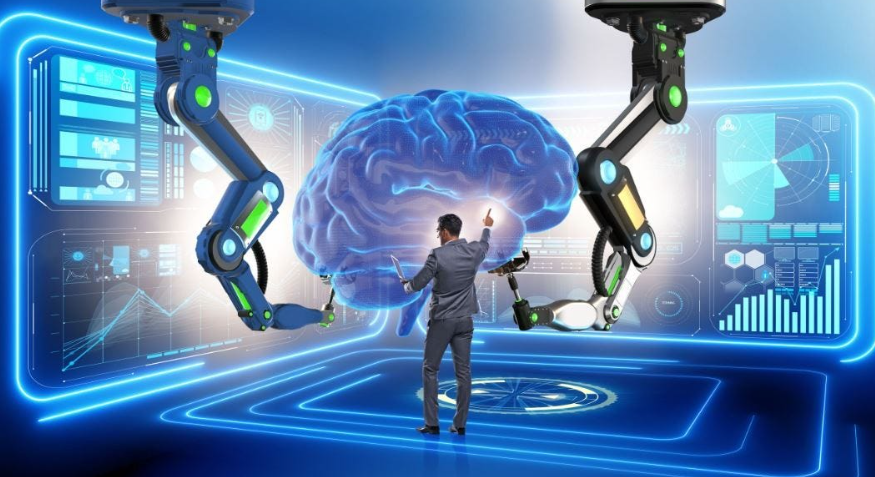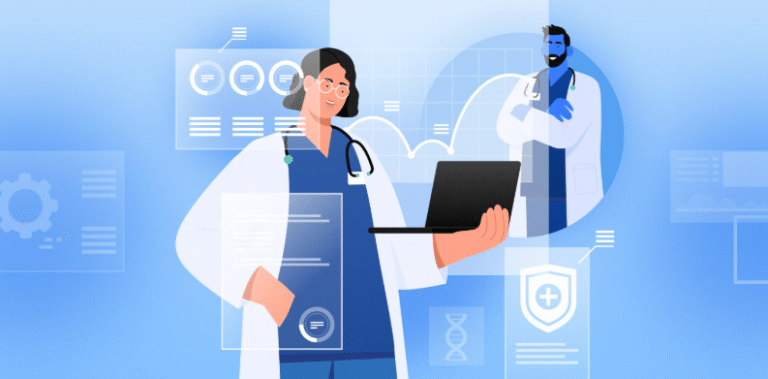How Artificial Intelligence is Changing Everyday Life
Artificial Intelligence (AI) has evolved from a futuristic concept into a tangible reality shaping the world around us. From the way we communicate to how we manage our health, AI is seamlessly integrating into our daily routines, transforming everyday life in profound ways. This article explores how AI is changing our lives across various sectors, offering insights into its benefits, challenges, and future prospects.
Introduction to Artificial Intelligence (AI)
Artificial Intelligence refers to the simulation of human intelligence in machines programmed to think, learn, and perform tasks typically requiring human cognition. The journey of AI began in the mid-20th century, with early efforts focusing on rule-based systems. Over time, advances in machine learning, natural language processing, and deep learning have accelerated AI’s capabilities, making it an indispensable part of modern technology.
Today, AI is pivotal because it automates repetitive tasks, enhances decision-making, and enables smarter interactions, thus reshaping how we live, work, and interact.
See also: anonposted
AI in Communication and Social Interaction
One of the most visible ways AI affects daily life is through communication. Virtual assistants like Siri, Alexa, and Google Assistant use AI to understand and respond to our commands, making tasks easier and faster. Chatbots on websites provide instant customer support, saving time and improving user experience.
Moreover, social media platforms leverage AI to curate content tailored to individual preferences, shaping how we connect and consume information. AI algorithms analyze user behavior to suggest posts, friends, and advertisements, creating highly personalized digital environments.
AI Revolutionizing Healthcare
Healthcare is witnessing a remarkable transformation with AI-driven technologies. AI assists in diagnostics by analyzing medical images with accuracy comparable to experts, enabling early detection of diseases such as cancer. Personalized medicine benefits from AI’s ability to analyze genetic data and patient history to recommend tailored treatment plans.
Wearable health devices powered by AI monitor vital signs continuously, alerting users and doctors to potential health issues in real time. This proactive approach to healthcare improves outcomes and enhances the quality of life.
Smart Homes and AI Automation
AI-powered smart home devices are becoming household staples. Voice-controlled assistants manage everyday tasks such as setting reminders, playing music, or controlling lighting and thermostats. AI integration in energy management optimizes electricity consumption, saving costs and reducing environmental impact.
Security systems use AI for facial recognition and anomaly detection, providing enhanced safety. These advancements contribute to a more convenient, secure, and energy-efficient living environment.
AI in Transportation and Travel
Self-driving cars are no longer science fiction but an emerging reality. AI enables vehicles to navigate roads, recognize obstacles, and make split-second decisions, potentially reducing accidents and improving traffic flow. AI also powers navigation apps that optimize routes based on real-time traffic data, saving time and fuel.
Beyond cars, AI helps in travel planning by analyzing preferences, budgets, and reviews to suggest personalized itineraries, making travel more enjoyable and hassle-free.
AI Transforming Education
Education is becoming more accessible and personalized through AI. Intelligent tutoring systems adapt to individual learning styles, pacing lessons to student needs, which helps improve retention and engagement. AI tools assist educators in grading, tracking progress, and identifying areas where students struggle, allowing for timely intervention.
Language translation and speech recognition AI tools break down barriers, enabling a more inclusive learning environment worldwide.
AI in Shopping and E-Commerce
Shopping experiences are increasingly personalized thanks to AI. Online retailers use AI algorithms to recommend products based on browsing history, preferences, and purchasing patterns, increasing convenience and satisfaction. Chatbots assist customers with queries, returns, and recommendations, providing 24/7 support.
AI also helps optimize inventory management and pricing strategies, ensuring better availability and competitive pricing.
AI Enhancing Entertainment and Media
AI shapes entertainment by creating personalized content playlists on streaming platforms like Netflix and Spotify, ensuring users find exactly what they enjoy. In gaming, AI adapts gameplay to player skill levels, making games more engaging and challenging.
Content creators employ AI tools for editing, special effects, and even generating music or artwork, expanding creative possibilities.
AI in Financial Services
AI is revolutionizing finance by detecting fraudulent transactions through pattern recognition, protecting consumers and businesses alike. Robo-advisors use AI to provide personalized investment advice based on individual goals and risk tolerance, democratizing access to financial planning.
AI-powered analytics help financial institutions manage risks and comply with regulations more effectively.
Ethical Considerations and Challenges of AI
Despite its benefits, AI raises significant ethical issues. Privacy concerns emerge as AI collects and analyzes vast amounts of personal data. Ensuring data security and transparency is paramount.
Job displacement is another challenge, as automation may replace certain roles, demanding a shift in workforce skills and new job creation. AI bias and fairness are critical to address to prevent discrimination embedded in algorithms.
Future Prospects of AI in Daily Life
The future of AI holds exciting possibilities. Emerging technologies such as AI-powered augmented reality, smarter robotics, and more intuitive human-machine interfaces will further blur the lines between the digital and physical worlds.
As AI evolves, its role in everyday life will expand, offering smarter solutions to complex problems while requiring responsible development and use.
Frequently Asked Questions (FAQs)
1. What is AI and how does it work in daily life?
AI simulates human intelligence by processing data and learning patterns, enabling machines to perform tasks such as recognizing speech, recommending products, or driving cars.
2. How safe is it to rely on AI-powered devices at home?
Most AI-powered devices are designed with security protocols, but users should stay informed about updates and privacy settings to ensure safety.
3. Will AI replace human jobs completely?
AI will automate certain tasks but also create new roles. The future workforce will require adaptability and new skills to complement AI technologies.
4. How does AI improve healthcare outcomes?
AI enhances diagnostics, personalizes treatment, and monitors health continuously, leading to earlier detection and better patient care.
5. Can AI help in making smarter financial decisions?
Yes, AI analyzes market data and personal finances to provide tailored advice, helping users make informed investment and spending choices.
6. What are the privacy risks involved with AI technologies?
AI collects and processes large amounts of data, which can be vulnerable to breaches or misuse if not properly managed with strong ethical and security standards.
Conclusion
Artificial Intelligence is no longer a distant future—it is actively changing the fabric of everyday life. From smarter communication to advanced healthcare and personalized education, AI is enhancing convenience, efficiency, and safety. While challenges remain, embracing AI responsibly promises a future where technology works harmoniously to improve human experiences.



